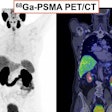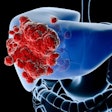Dear AuntMinnie Member,
Well, this was a big week for us, as we released the winners of our annual Minnies event recognizing excellence in radiology.
The Minnies are designed to give radiology professionals a chance to acknowledge the contributions of their peers to the field of medical imaging. The event includes categories ranging from Most Influential Radiology Researcher to Best Radiology Image, and include categories for devices, software, educational mobile apps, and more. Find out who won at minnies.auntminnie.com.
This year's competition was a bit special, marking the 20th edition of the Minnies. It can be fascinating to look back over the individuals and issues that were acknowledged over the past two decades, so we've prepared a list that does just that.
Congratulations to all the Minnies winners, as well as to everyone else who was nominated.
AI for brain hemorrhage
Among our top stories for the week was an article on research in which an artificial intelligence (AI) algorithm was used to accurately identify acute intracranial hemorrhage on head CT scans. California researchers found that the algorithm was able to detect tiny brain bleeds that might be missed by radiologists.
In other AI news, a group from Philadelphia employed AI to examine thyroid ultrasound scans as an alternative to needle biopsy, while South Korean researchers used a commercially available AI algorithm to help residents improve their sensitivity when interpreting chest x-rays.
Get these stories and more in our Artificial Intelligence Community.
fMRI for Gulf War ills
Finally, be sure to check out a story in our MRI Community on how functional MRI was used to differentiate Gulf War illness from chronic fatigue syndrome. The importance of safety in the MRI suite was highlighted by news out of Sweden in which a hospital staffer was injured by apparently being pulled into a scanner's magnet field. And don't stop reading until you've looked at this fascinating study in which Mayo Clinic researchers showed how it's possible to reconstruct data from MRI brain scans to match patient photos -- creating a potential privacy risk for participants in research studies.
Check out our MRI Community at mri.auntminnie.com for more news about this vibrant modality.



















